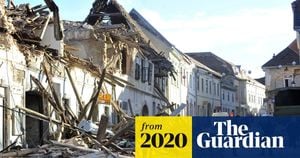BADIA POLESINE – Commemoration of Dalmatian-Istrian Executions Holds Strong Significance
On February 11, 2025, the town of Badia Polesine marked the Day of Remembrance for the victims of the foibe massacres, reflecting on the tragic history surrounding the violence against Italians during and after World War II. The ceremony took place on Via Martiri delle Foibe, initially named for the martyrs of this dark period. It attracted students from the Ghirardini middle school and the Levi institute, who contributed to keeping the memory alive by reading poignant excerpts related to the events.
Local authorities, representatives of law enforcement, and various community organizations gathered at the event, signaling the importance of remembrance. Mayor Giovanni Rossi emphasized the need for the public to engage with their collective identity as he addressed the students, stating, "The fundamental aspect of Article 9 of the Constitution is the transition from Republic to Nation. The Republic is objective, but Nation must be constructed through engagement and shared values. You have the great duty of taking steps every day to become the Nation.”
Senator Bartolomeo Amidei spoke about the importance of recognizing past atrocities, reflecting, “Eighty years is a short time since the tragic events of the exodus, which saw thousands of Italians murdered by Tito's partisans. We have already initiated the process to revoke the state honors bestowed upon him.” He noted the enduring danger of historical denial, indicating how, at the time of establishing the Day of Remembrance, there were members of Parliament who denied the existence of the foibe.
Deputy Piergiorgio Cortelazzo echoed these sentiments by urging students to take the responsibility of conveying and remembering this historical period, stating, “We must not fall prey to those who have obscured this tragedy for so long. You, the younger generations, have the obligation to pass on this important memory.”
Regional Councilor Cristiano Corazzari stressed the need for honest recognition of the past, asserting, “We need to establish strong messages directed first and foremost at ourselves as a national community, because the most dramatic aspect was our community's attitude toward this tragedy over the years.” He called for continuous reflection on historical injustices, encouraging the youth to maintain open minds.
Laura Cestari, regional council member, highlighted the lasting impact on women during these events, emphasizing their suffering, saying, “I would like to focus on women, for they are often the ones who suffer the most during tragic events—this is not just about feminism, it’s objective.”
The event concluded with blessings from priests Don Matteo and Don Guido, underscoring the collective hope to never forget. The delegation from the Fratelli d’Italia party was particularly vocal, with councilor Ivo Baccaglini reflecting on the road to honoring the martyrs' memory since 2004, when the initiative to name the street was launched. Baccaglini pointed out, “Our council pathway lasted almost two years, and this was the first street named for this tragedy in the province.”
Baccaglini then urged local administrators to continue this initiative, pushing for every town to dedicate streets, squares, or any public space to honor the victims, stating, “Memory must be nurtured.” The significance of this remembrance stretches back to 2007 when Badia Polesine first named a street after the victims, showing leadership within the province of Rovigo.
The event was characterized by simplicity yet deep involvement, marking the twentieth anniversary of the Day of Remembrance with great reverence. The municipal administration, represented by Mayor Giovanni Rossi and regional council members, supported the commemoration with civil, military, and religious authority present. Students, having studied the day's historical significance, formed a large part of the audience.
During the ceremony, themes about collective memory surfaced repeatedly. The senator's remarks about Tito receiving honors drew attention to past grievances, and Baccaglini's narrative of the street naming process not only celebrated the historical recognition but also highlighted the extensive efforts required to keep these memories alive. This initiative serves as both tribute and warning against forgetting atrocities committed.
The continuing legacy of remembrance was symbolized by the significant presence of community leaders and students, ensuring the stories of suffering are passed on to future generations. The ceremony closed with prayers for the deceased and blessings from local clergy, fostering hope for continued remembrance.



